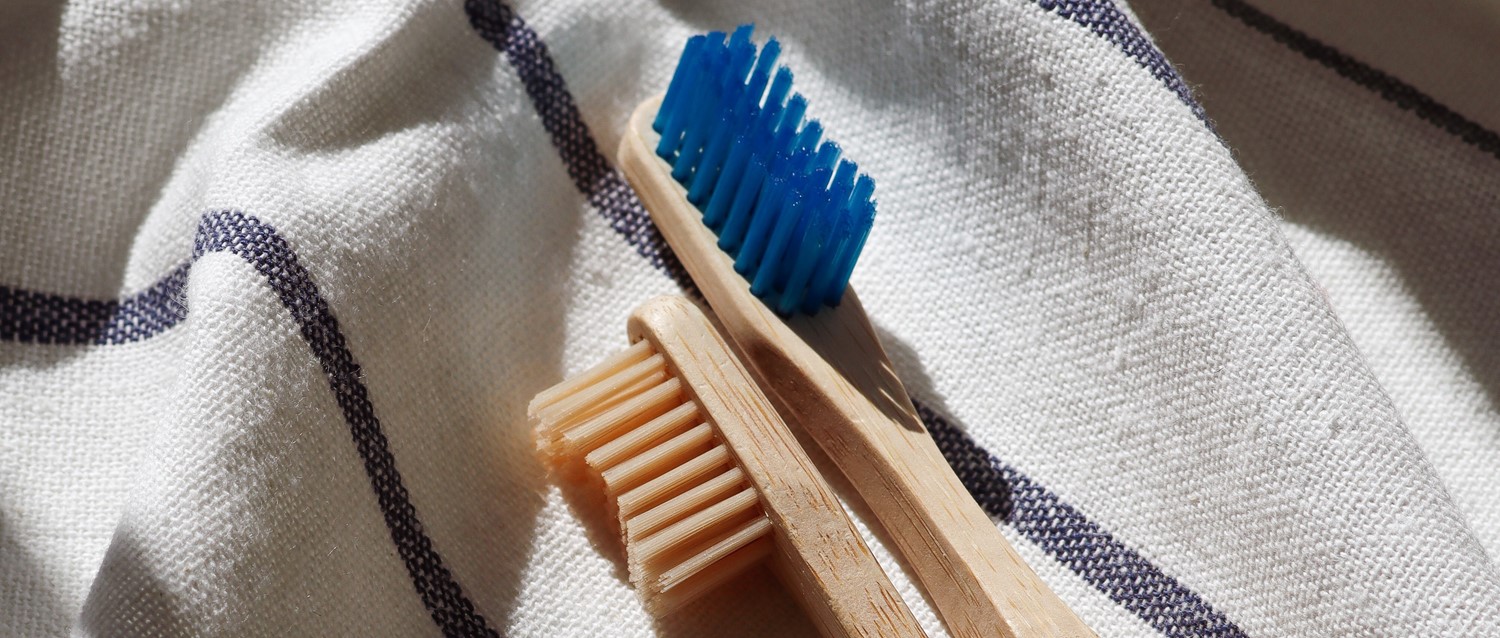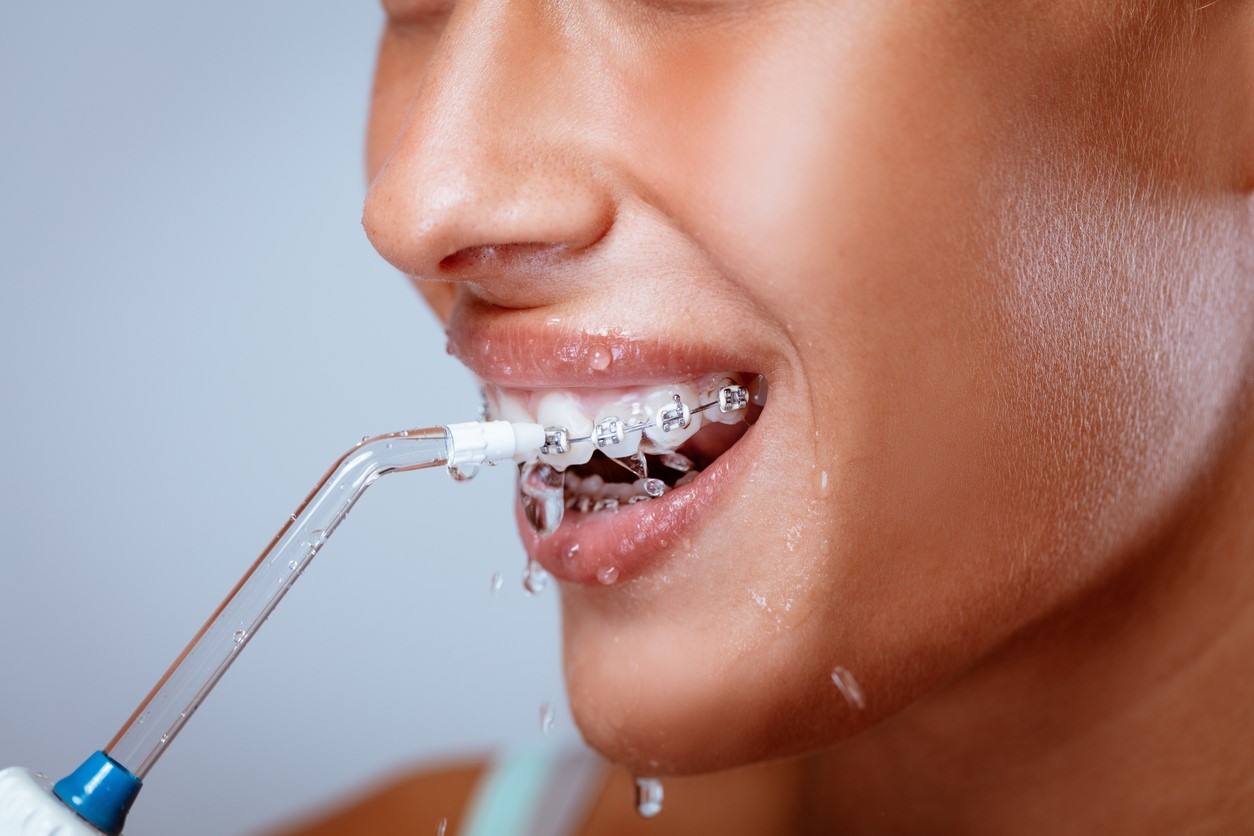
How to cope with sensitive teeth
Peer reviewed by Dr Sarah Jarvis MBE, FRCGPLast updated by Sally TurnerLast updated 22 Apr 2021
Meets Patient’s editorial guidelines
- DownloadDownload
- Share
- Language
- Discussion
If you have sensitive teeth you'll be all too familiar with the sharp pain set off by hot or cold foods and other common triggers. For most, the pain is temporary and is typically the result of worn tooth enamel. But for some there may be other causes and the pain may become chronic. We ask the experts how to manage sensitive teeth and the associated pain.
In this article:
Video picks for Dental care
Tooth sensitivity is a common problem, with one study reporting that 25-38% of people surveyed experienced 'pain in teeth with hot, cold or sweet things'. A more recent US study indicated the problem was most common in young people, women, those using home teeth-whitening kits, and in people with receding gums.
Tara Renton, a professor in oral surgery at Kings College London, adds that research published in 2017 shows that pain felt in the head region is more severe.
"The pain and the emotion experienced with it is much greater than pain perceived anywhere else in the body," she explains. "This makes sense as the trigeminal nerves in the head protect your eyes, nose and mouth and any perceived threat could impact upon survival. So it hurts a lot more."
Continue reading below
What causes sensitive teeth?
Erosion of tooth enamel
The primary cause of sensitive teeth is dentine hypersensitivity. Dentine is layer of calcified material that lies immediately underneath the hard, outer enamel of the tooth. It has minute tubal structures within it that provide sensory information to the pulp (or nerve) at the centre of the tooth. When the enamel is worn down, the dentine is exposed and stimuli such as cold drinks or acidic foods cause a short, sharp pain in the teeth.
The grinding action of the teeth when we eat (attrition) and abrasive cleaning of the teeth (abrasion) can contribute to exposure of dentine. But it is erosion of the enamel, caused by acidic things we eat and drink, that is the main culprit. Fruit juices, fruit teas, white wine, cider and balsamic vinegar all fall into this category, as do fizzy drinks, including fizzy water - it's carbonic acid that creates the bubbles.
Frequency, rather than the amount consumed, is the issue. For example, sipping cola or orange juice throughout the day is potentially more damaging than drinking a glass in one go, as it means the teeth are under more frequent attack from acids.
"Acid reflux may be a causal factor for some people," adds Renton. "The frequent vomiting associated with bulimia can also cause erosion of tooth enamel. Anyone thinking of bleaching and whitening their teeth should also be aware that in some cases this can lead to permanent dental pain."
But not everyone is susceptible to dental erosion and sensitive teeth - it may be down to genetics.
"There's a genetic component which means some people's saliva may be better at neutralising acidic food and drink than others," explains Mr Matthew Garrett, a consultant in Restorative Dentistry and Dean of the Faculty of Dental Surgery at the Royal College of Surgeons of England. "Saliva is an important protective mechanism against acid attack on teeth. A number of medications including antidepressants and antihypertensive drugs can reduce salivary flow."
It has also been suggested that chewing sugar-free gum after eating can help to reduce acid attack by encouraging the production of more saliva. However, research is lacking on how important saliva really is in reducing erosion.
Gum recession
If your gums bleed when you brush and floss, it may be a sign of gingivitis or periodontal disease which can cause gum recession that exposes the dentine. When more of the tooth is exposed, particularly the root area, increased sensitivity may result.
If only one tooth has gum recession, it may be as a result of heavy-handed brushing in that area. Also, some people have a labial frenulum, a thin layer of tissue that connects the lips to the gums and bones in the face - this can sometimes exacerbate gum recession of the front teeth.
"Some people have thin gum tissue and others have fibrous tissue which may be less prone to recession," says Garrett.
Neuropathic pain
Neuropathic pain can occur as a result of lesions or damage to peripheral or central sensory nerves. This includes post-traumatic neuropathic pain (pain after dental implants, extractions or root canal work) and trigeminal neuralgia.
The latter is a separate condition that may be part genetic and partly due to pressure of vessels in the brain pressing on the nerve root. The trigeminal nerve which sends sensory signals from the face to the brain is affected, causing jolts of excruciating pain triggered by the mildest of stimuli, such as brushing the teeth.
"Trigeminal neuralgia is quite rare, affecting about three in 100,000 people and it is more prevalent in older people," says Renton. "More likely is neuralgia pain as a result of trauma, such as a cracked tooth or having a tooth removed that damages a nerve. Phantom tooth pain (PTP) may occur when a nerve is damaged this way, causing constant or intermittent pain like an electric shock."
When areas of the brain lose input from the missing tooth, or signals are received from a damaged nerve, the brain thinks something is wrong and generates pain in response to the perceived threat.
What treatments are available for sensitive teeth?
Back to contentsOver-the-counter remedies
Most toothpastes for sensitive teeth contain potassium nitrate which reduces pain signals to the nerve of the tooth by blocking up the tiny tubes in the dentine. Using a fluoride toothpaste will also help strengthen the enamel.
"If you're not getting relief you could also try a fluoride alcohol-free mouthwash at a different time to your normal toothbrushing," suggests Garrett. "That will increase the number of times fluoride is in contact with the teeth and will help harden the enamel to prevent it wearing down."
Taking supplements such as vitamin B6 and B12, omega-3 fatty acids, magnesium and coenzyme Q-10 have been shown to support the normal functioning of the nervous system so may also be worth considering.
Clinical treatments
"Prevention is best by maintaining good oral hygiene," says Renton. "Brush your gums, not your teeth. If your gums bleed it's a sign you're not cleaning properly. If you have receding gums around a tooth then a gum graft can be carried out by a specialist dentist to replace lost tissue. It's not 100% guaranteed to work though and it's an expensive procedure."
Fluoride resins and varnishes, or white filling material, can in some cases be painted on to the teeth by your dentist. These need to be applied at appointments one or two weeks apart and can prevent further wearing down of the enamel.
"Dentine wears down much faster than enamel," explains Garrett. "Once it's exposed the wear happens faster and you need more protection."
Treating nerve pain
Neuropathic pain in the dental region caused by damage to nerves can be difficult to treat. Over-the-counter painkillers such as paracetamol and ibuprofen don't work effectively on this type of pain.
"Tricyclic antidepressant drugs such as nortriptyline are effective for ongoing neuralgic pain," says Renton, "and also medications used to prevent seizures, such as pregabalin and gabapentin."
These drugs work by changing the way nerve signals travel to the brain. They can be effective at controlling pain, but are not tolerated well by everyone. Side effects can include severe drowsiness and dizziness, and some can be addictive.
"Neuropathic dental pain is often temporarily relieved when there's activity like chewing or biting," continues Renton. "So chewing gum or sugar-free pastels can help some patients. In cases where people can't tolerate the pain medications, I might ask their dentist to inject long-acting anaesthetic where it hurts, a couple of times a week. It doesn't work for everyone but can give much-needed relief for six to eight hours in people who can't take the medications. Botulinum toxin injections may also have a treatment role in certain cases."
Acupuncture has also been shown to help some people with neuropathic pain, and Renton adds that it is important to take a holistic approach:
"We use clinical psychology a lot in clinic including mindfulness exercises which can really help some people step back a bit from the pain and feel a bit more in control."
Continue reading below
How to clean your teeth to treat and avoid sensitivity
Back to contentsHere are our top tips for brushing your teeth:
Brush where your teeth meet your gums for one to two minutes twice a day and be gentle.
Use a fluoride toothpaste and ideally use an electric toothbrush with soft bristles, and a smaller brush for areas where the gums are receding.
Use floss or small interdental brushes every day to clean between the teeth.
Disclosing food dye tablets, available from pharmacies, can improve your brushing technique by showing up areas that need better cleaning.
"You can dab a fluoride toothpaste for sensitive teeth on your teeth and gums before bed so it gets to work overnight," says Renton. "It sticks around your gums better than it does during the day. Some people even get sports gumshields made up that they wear at night with the toothpaste underneath. It promotes dental protein formation in the dental pulp."
Further information
Back to contentsIf you have ongoing tooth sensitivity for more than a week it is important to see your dentist to determine the cause. It may be that you need a filling or treatment for an infection. If you have dentin sensitivity that is not alleviated by over-the-counter treatments, seek advice from your dentist on how to proceed.
Gum recession and neuropathic pain may require specialist treatment, and occasionally facial pain may be a symptom of another condition such as migraine, cancer or multiple sclerosis. Your dentist can refer you to a specialist if further diagnostic and clinical expertise is required.
For a list of registered dentists, visit the General Dental Council.
Patient picks for Dental care

Oral and dental care
Is water flossing effective?
Brushing your teeth keeps them clean and healthy, and flossing is important to clean hard-to-reach areas. Conventional dental floss is tried and tested but new technologies - such as water flossing - offer convenience and simplicity. We explore if water flossing is as effective as regular methods.
by Matt Binny

Oral and dental care
How your teeth can affect your self-esteem
How we feel about our teeth can really affect our confidence. As a third of adults admit to being unhappy with their smile, dentist Dr Steve Preddy explores how our oral health plays an important role in our mental well-being.
by Dr Steve Preddy
Continue reading below
Article history
The information on this page is peer reviewed by qualified clinicians.
22 Apr 2021 | Latest version
22 Apr 2021 | Originally published

Ask, share, connect.
Browse discussions, ask questions, and share experiences across hundreds of health topics.

Feeling unwell?
Assess your symptoms online for free
Sign up to the Patient newsletter
Your weekly dose of clear, trustworthy health advice - written to help you feel informed, confident and in control.
By subscribing you accept our Privacy Policy. You can unsubscribe at any time. We never sell your data.